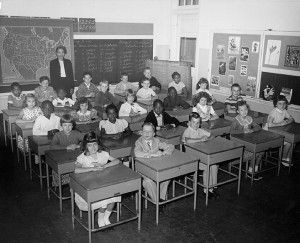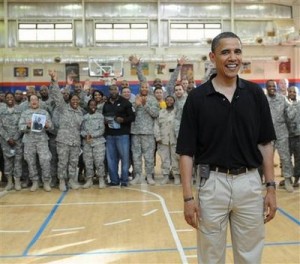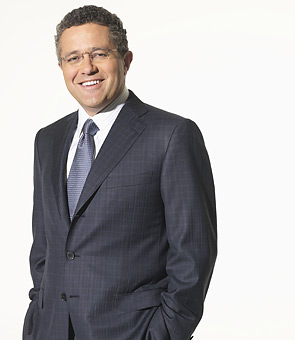This piece originally ran on the Opinion page of the May 17, 2010, edition of the Washington Times.
Elena Kagan’s problem is not that she has too much empathy but that she has too little. President Obama famously made “that quality of empathy, of understanding and identifying with people’s hopes and struggles” his key qualification for a seat on the Supreme Court. What little we know of Ms. Kagan’s record demonstrates that she does not meet even that nebulous standard.

Empathy would require that Ms. Kagan place herself in the position of the “despised and downtrodden,” as her mentor Justice Thurgood Marshall put it. And who could possibly be more despised than a United States Army officer assigned to recruiting duties at Harvard Law School?
Did Dean Kagan put herself in his place before enforcing her law school’s repugnant ban on military recruiters? Did she imagine the feelings inside that young captain, perhaps limping from the fragments still in his leg from an improvised explosive device that hit his convoy outside Ramadi, as he walked through Harvard’s gates? Did she consider the stares he drew at the training academy from the liberal elite, the palpable contempt directed at him as one whose mere presence Harvard had officially designated as morally unworthy?
Did she put herself in his place as he watched Harvard career services personnel warmly greet the representatives from the big law firms and swiftly guide them to well-appointed interview rooms while he was ignored? Did Ms. Kagan understand that it only made it worse knowing that many of those big law firms eagerly supply lawyers to do pro bono work on behalf of the terrorists who murdered his friends?
And did she empathize with that young captain as he mentally noted that the “Don’t Ask, Don’t Tell” policy that Harvard Law’s dean cited as grounds for humiliating him was passed by a Congress and signed by the president of the dean’s own party? And does it bother Ms. Kagan today that she chose to disrespect our military over “Don’t Ask, Don’t Tell,” despite the fact that she worked for that same president, and that the same policy is kept in place today by a Congress of her own party and enforced by the president who nominated her?

Did she put herself in the captain’s place as he watched representatives of every other federal government agency treated with dignity and respect? Did she think about how there was only one reasonable conclusion that the young captain could draw – that Harvard and those within it hold those who wear a uniform of the United States military in contempt?
Ms. Kagan’s empathy clearly did not extend to the officers that her school treated with such disrespect. The fact is that while she barely has any paper trail at all, her behavior at Harvard makes it safe to assume that what empathy she does have is reserved solely for the designated victim constituencies that pass muster within the Harvard Law School faculty lounge.

President Obama said:
I will seek someone who understands that justice isn’t about some abstract legal theory or footnote in a casebook; it is also about how our laws affect the daily realities of people’s lives, whether they can make a living and care for their families, whether they feel safe in their homes and welcome in their own nation.
But Ms. Kagan will have no such understanding when it comes to those who do not appear on the approved roster of designated victims. She proved that beyond any doubt as Harvard Law’s dean.
She will feel the frustration of a terrorist detained at Guantanamo, but she will not feel the pain of the family burying the corporal whom terrorist bombs will kill when the detainee returns to Afghanistan after she votes to release him.
She will feel for the career criminal facing life after his third felony strike, but not the agony of the family of the little girl he grabs as she walks home from school after he is put back on the street.

She will not feel the fear of the elderly woman living alone, deprived of the ability to protect herself with a handgun. She will not feel the frustration of a political activist told that if he publishes his book criticizing a sitting politician he can go to jail in the name of “campaign finance reform.” She will not feel the despair of a family farmer bankrupted by irrational environmental regulations. She will not feel the pain of a child subject to partial-birth abortion.
For liberal legal academics like Ms. Kagan and for the president, the result compelled by the facts and the law must always be subordinate to the progressive narrative and to the desired outcome. Their “justice” is not blind. To them, “justice” is a matter of results, not process. To them, “justice” means that their favored group prevails.
This is precisely the opposite of justice, and what they call “empathy” is nothing like empathy as it is understood outside academia. If Ms. Kagan possessed even a trace amount of true empathy, she would never have enforced Harvard’s hateful military exclusion policy. If she possessed true empathy, she would be ashamed of herself.
The sad fact is that “empathy” is nothing but a code word for bias toward favored groups. And those “despised and downtrodden” whose cases will be judged by Justice Kagan and do not fall within one of her favored groups will find she has no empathy at all.
COMMENTS
Please let us know if you're having issues with commenting.